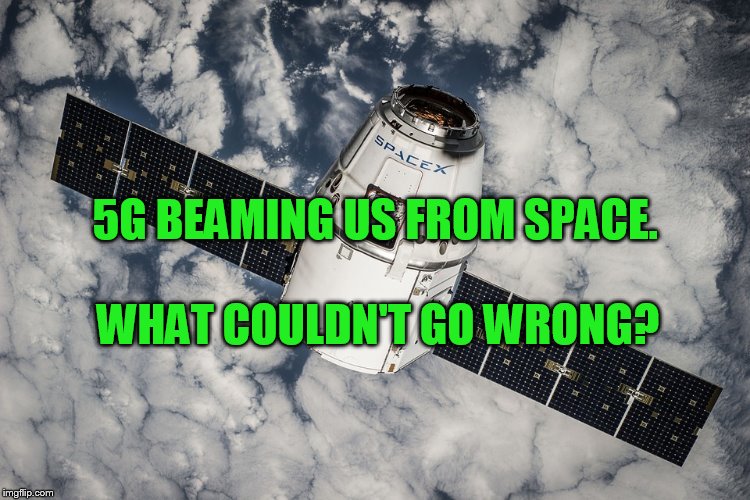 By B.N. Frank
By B.N. Frank
Over the years there has been opposition and warnings worldwide about various catastrophic risks as well as confirmed issues associated with broadband satellites (see 1, 2, 3, 4, 5, 6, 7, 8, 9, 10, 11, 12) and similar vehicles being launched into space. In fact, insurance companies are less willing to insure satellites due to collision risks. Earlier this year, 40 SpaceX Starlink satellites also fell from orbit and burned. High-speed internet access is actually more reliable, more secure, and safer with hard-wired connections via fiber optics to the premises and copper landlines (see 1, 2). Nevertheless, companies keep getting approval to launch thousands more broadband satellites.
From Zerohedge:
Satellite-Internet Race Heats Up As Amazon Secures 83 Rocket Launches
by Tyler Durden
The satellite internet space race is about to heat up as Amazon Inc. announced Tuesday one of the largest rocket deals in the commercial space industry’s history, signing three companies for 83 launches over five years to deploy a 3,236 low Earth orbit (LEO) satellite constellation.
Amazon’s Project Kuiper plans to take on Elon Musk’s Starlink satellite internet service. Kuiper aims to provide high-speed, low-latency broadband to customers in rural places. Like Starlink, Amazon will have affordable customer terminals and a ground-based communications network.
“Project Kuiper will provide fast, affordable broadband to tens of millions of customers in unserved and underserved communities around the world,” said Dave Limp, Senior Vice President for Amazon Devices & Services.
No timetable was given when Arianespace, Blue Origin, and United Launch Alliance would begin launching the LEO constellation of 3,236 satellites. However, Amazon is preparing to begin testing a pair of Kuiper prototype satellites in the second half of this year. According to FCC documents, Kuiper is expected to have half of its satellites in LEO by 2026.
- Arianespace: 18 launches of Europe’s Ariane 6 rocket
- Blue Origin: 12 launches via the New Glenn rocket, with options for 15 additional launches
- United Launch Alliance: 38 launches via the Vulcan rocket
“We still have lots of work ahead, but the team has continued to hit milestone after milestone across every aspect of our satellite system. These launch agreements reflect our incredible commitment and belief in Project Kuiper, and we’re proud to be working with such an impressive lineup of partners to deliver on our mission,” Limp said.
Kuiper will compete against Musk’s Starlink internet service. Starlink already has more than 1,900 satellites in LEO and 250,000 subscribers. The next-generation satellite internet has already provided unprecedented speeds for people in rural areas and even in warzones. Here’s a map of where Starlink is available in the US.
Internet from space appears to be the future, and so far, Starlink is the only provider for consumers, but Amazon’s Kuiper is not far behind.
Activist Post reports regularly about broadband satellites and unsafe technology. For more information, visit our archives and the following websites:
- Safe Tech International
- 5G Space Appeal
- EMF Scientist
- Electromagnetic Radiation Safety
- Environmental Health Trust
- Physicians for Safe Technology
- Wireless Information Network
Become a Patron!
Or support us at SubscribeStar
Donate cryptocurrency HERE
Subscribe to Activist Post for truth, peace, and freedom news. Follow us on SoMee, Telegram, HIVE, Flote, Minds, MeWe, Twitter, Gab, What Really Happened and GETTR.
Provide, Protect and Profit from what’s coming! Get a free issue of Counter Markets today.




Be the first to comment on "Despite Warnings and Opposition, Amazon Approved for Launching 3,236 Broadband Satellites"